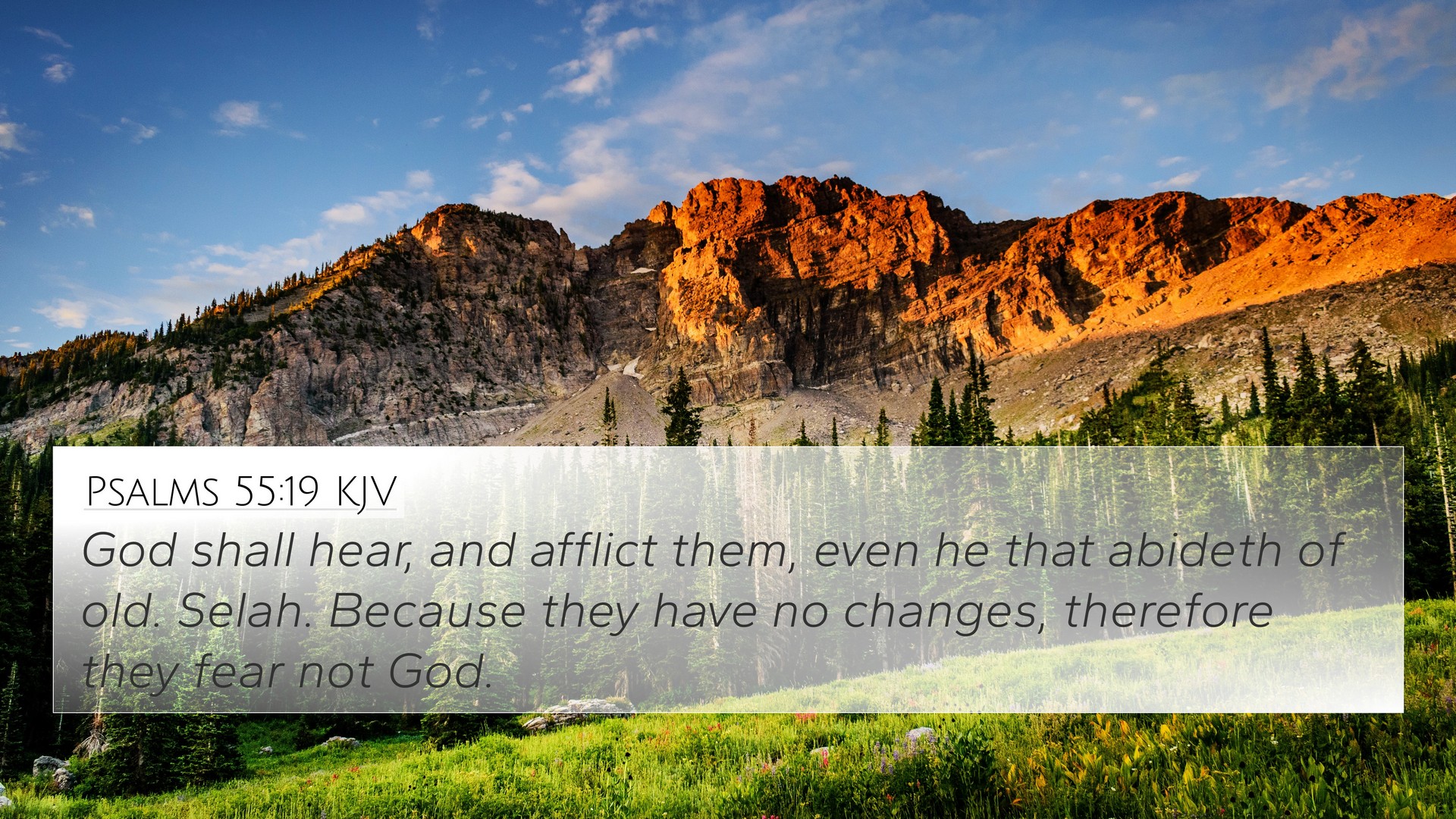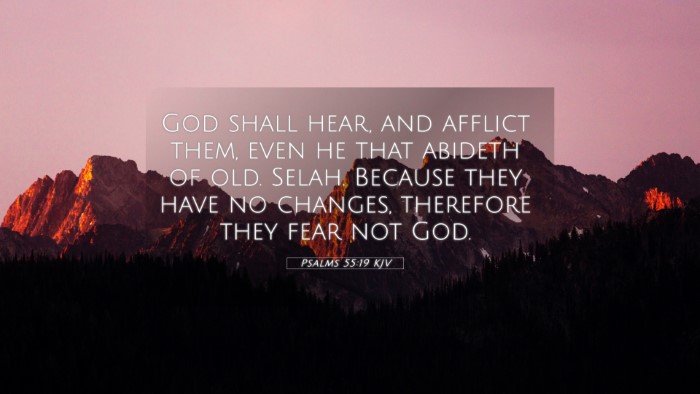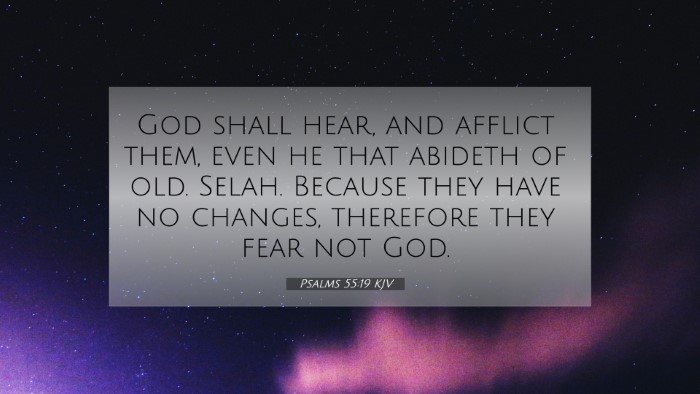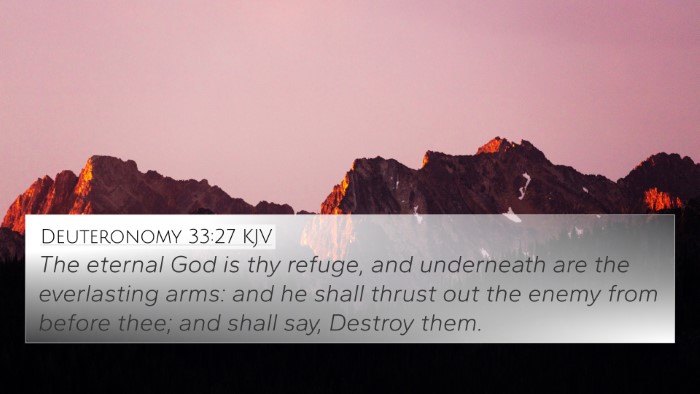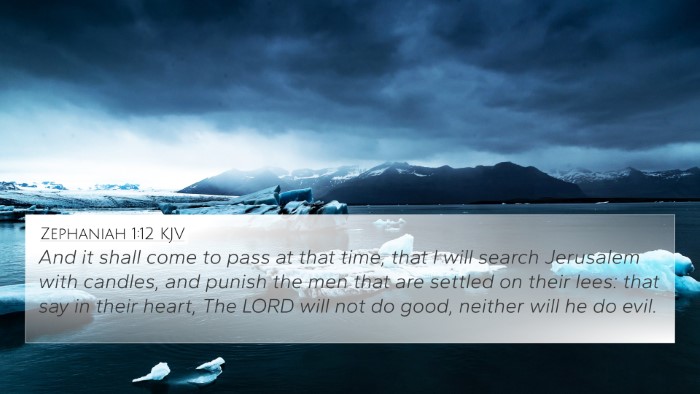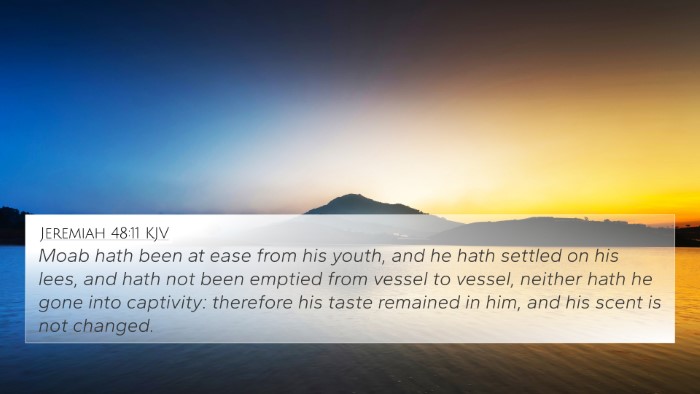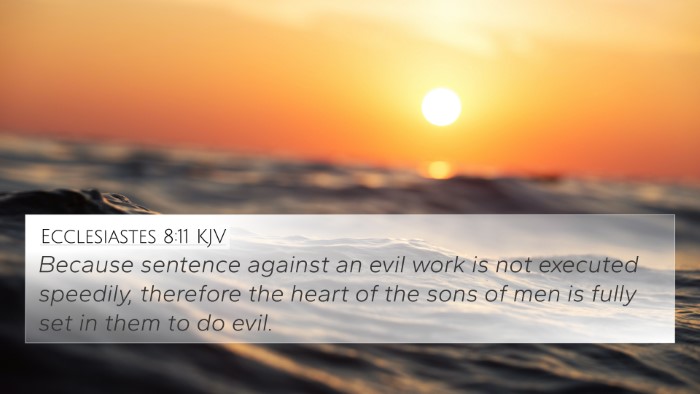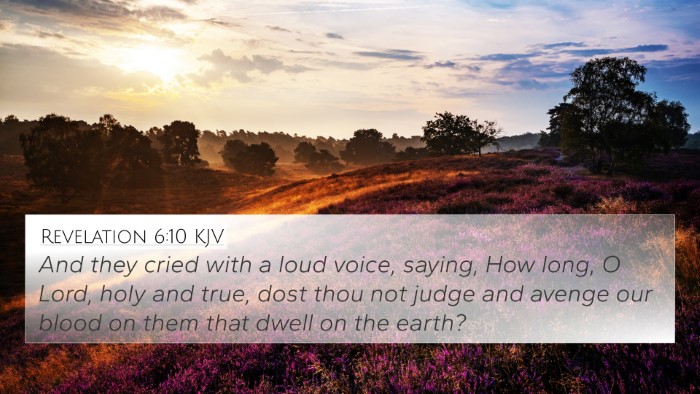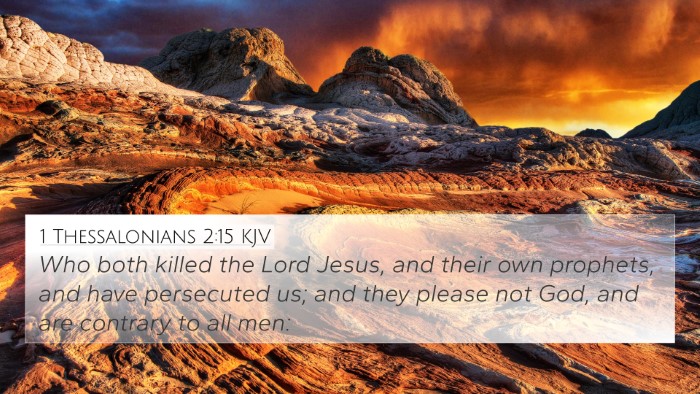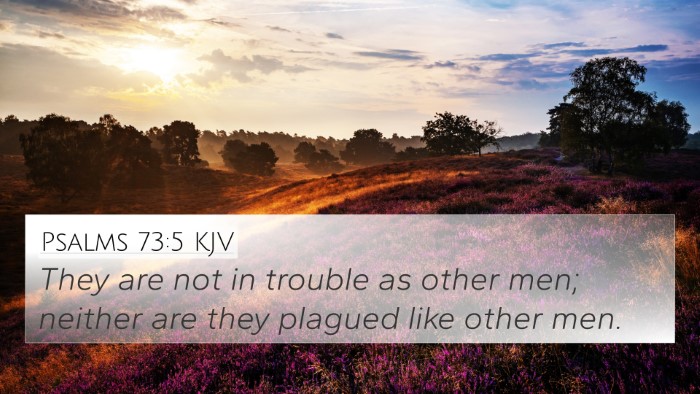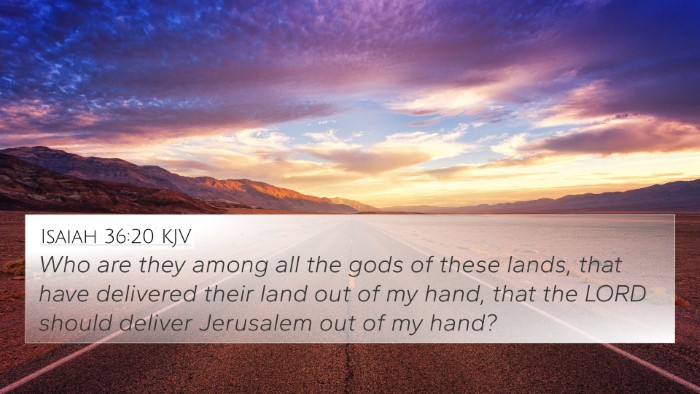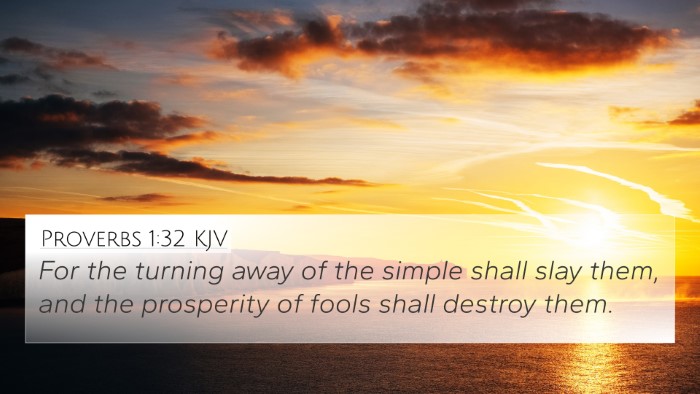Psalms 55:19: "God shall hear, and afflict them, even he that abideth of old. Selah. Because they have no changes, therefore they fear not God."
This verse speaks to the certainty of divine justice and the enduring nature of God’s oversight. It highlights the consequences faced by the unrepentant wicked and the assurance that they will not escape God's judgment.
Summary of Insights from Public Domain Commentaries
Matthew Henry’s Commentary
Matthew Henry emphasizes God's omniscience, stating that He will certainly hear the prayers of the afflicted and bring justice upon those who persist in their wickedness. The phrase "even he that abideth of old" points to the eternal nature of God, indicating that His perspective is unchanging while human actions vary greatly. Henry also notes the reason why the wicked do not fear God: their hearty indifference and lack of moral change keep them from recognizing the impending judgment.
Albert Barnes’ Notes on the Bible
Albert Barnes interprets this verse as a reflection of the rigid nature of sinners who remain stagnant in their rebellion against God. The reference to God’s enduring character reassures believers of His watchfulness. Barnes connects this to the idea that those who do not experience change in their hearts or lives stand at risk. He finishes on a note about the folly of the wicked who live without respect for God's authority, as there is ultimately a divine retribution awaiting them.
Adam Clarke’s Commentary
Adam Clarke explains that the phrase "God shall hear" signifies that God is always attentive to the needs of the faithful and will execute justice against the unfaithful. Clarke notes the "Selah," suggesting a pause for contemplation, perhaps to accentuate the weight of the message about God’s justice and the fears of those who defy Him. His emphasis rests on the unchanging aspect of God and how it contrasts with the unstable moral state of humans who do not adhere to God's decrees.
Cross-References for Psalms 55:19
- Psalm 9:12: "When he maketh inquisition for blood, he remembereth them: he forgetteth not the cry of the humble."
- Isaiah 57:15: "For thus saith the high and lofty One that inhabiteth eternity, whose name is Holy; I dwell in the high and holy place, with him also that is of a contrite and humble spirit."
- Malachi 3:6: "For I am the Lord, I change not; therefore ye sons of Jacob are not consumed."
- Romans 2:6: "Who will render to every man according to his deeds."
- Hebrews 13:8: "Jesus Christ the same yesterday, and to day, and for ever."
- Proverbs 1:32: "For the turning away of the simple shall slay them, and the prosperity of fools shall destroy them."
- Job 31:14: "What then shall I do when God riseth up? and when he visiteth, what shall I answer him?"
Thematic Connections
Psalms 55:19 ties deeply into several thematic connections in Scripture concerning justice, the nature of God, and the fear of the Lord:
- God's Justice: The verse reinforces the idea that God is a righteous judge who will not ignore the sins of humanity.
- Man’s Unchanging Nature: This verse reflects how the absence of moral change can result in a misunderstanding of divine judgment.
- The Security of God’s People: The faithful can take comfort in knowing that God is aware of injustice and will act according to His will.
- The Contrast of God's Stability vs. Human Instability: There is a stark difference presented between God’s eternal existence and the transient nature of human life and choices.
Practical Applications and Reflection
When considering Psalms 55:19, believers are led to reflect on their own lives and the importance of being in a continual state of repentance and awareness of God's workings. This verse encourages a heart that fears God—an acknowledgment of His enduring nature and a recognition of His ultimate authority.
Tools for Cross-Referencing: To further study the connections between scripture, several tools can facilitate deeper understanding such as a Bible concordance or a Bible cross-reference guide. Utilizing cross-referencing methods can enrich one's study by revealing links between Old and New Testament themes.
